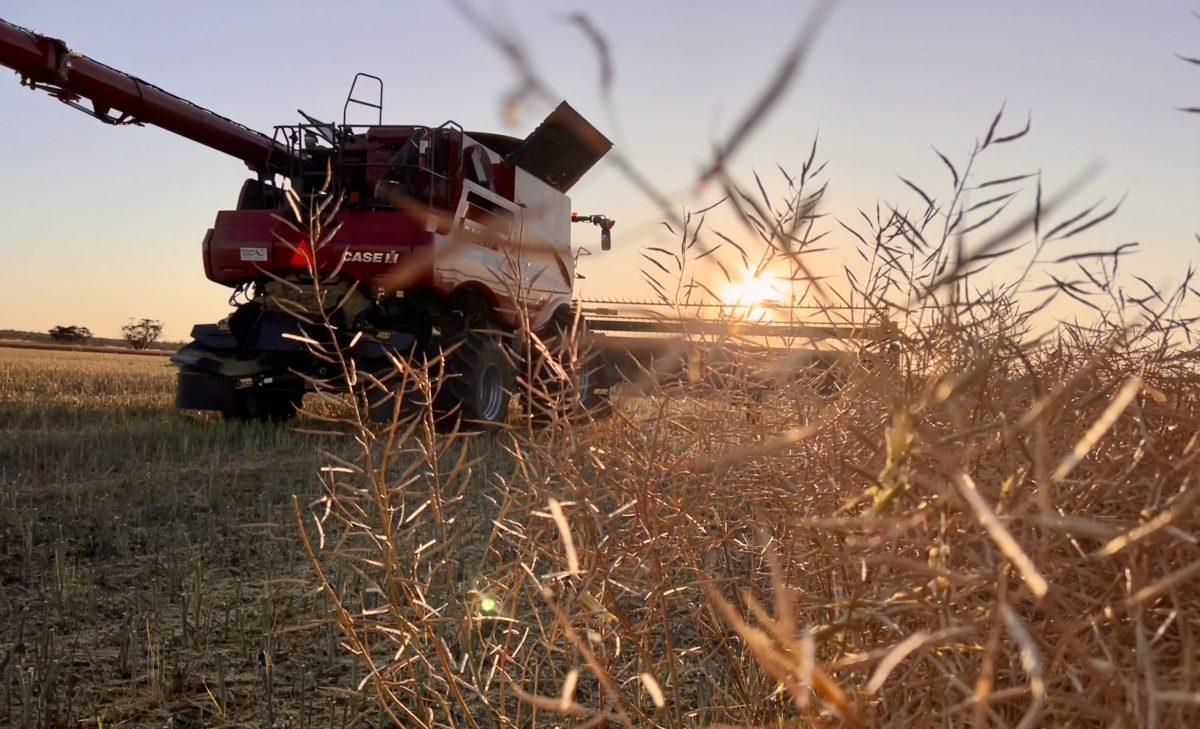
Machinery sales are slowing after significant plant upgrades in recent years. Photo: Case IH Australia
THE Australian Taxation Office’s instant asset write-off period for machinery purchases is due to end on June 30 which, along with the climate outlook, rising interest rates and unit costs, and softer commodity prices, is adding to the bearish outlook for machinery sales.
Latest figures from the Tractor and Machinery Association show January-February 2023 tractor sales were 27 percent below the corresponding 2022 period, with sales in the large 150kw plus range in February down 60pc on the same month last year.
Sources have told Grain Central the drop in sales was to be expected, following three bumper years for many growers translating to upgrades in planting equipment, headers, tractors and spray rigs, with the instant asset write-off as the sweetener.
TMA executive director Gary Northover told Grain Central the impact of the end to the instant asset write-off was not easy to predict.
“I was with a couple of farmer groups last week and the message was that they were well aware that the ‘sugar hit’ was coming to an end, but this wasn’t a signal to spend up,” Mr Northover said.
“I think that rising prices and a potential change to the weather outlook may lead to a tapering of demand in the near term.”
Delayed deliveries a factor
Amid the COVID-19 pandemic, the Federal Government in 2020 lifted the threshold for IAWO to $150,000 per asset from $30,000.
The threshold was then lifted, and extended into the current and previous financial year.
At Dubbo, The Farmer’s Accountant director Stephen Malcolm said the IAWO may not die in July.
“A lot of people are thinking they could extend it again,” Mr Malcolm said.
With the lag between ordering and delivery being six to 12 months or more on many units, Mr Malcolm said machinery already ordered might find itself on a depreciation register starting 2023-24.
“At this stage in 2023, if you don’t get the tractor for another year…the rules now are you’re outside the instant asset write-off timeline.”
“I think a lot of people have said: ‘That’s great; let’s grab a benefit.
“If it is removed, people are going to be paying considerably more tax in the next few years.”
“It was only ever a movement forward of tax deductibility.
With IAWO removed, it looks like the depreciation schedule for machinery arriving on farm in 2023-24 will start with 15 percent of the purchase price, followed by 30pc in ensuing years.
Mr Malcolm said the IAWO has been part of the pitch from dealers in recent years, and many growers have bought new self-propelled spray rigs costing up to $700,000, and harvesters for around $1M, as well as seeders and tractors.
“Every time they go into a tractor dealership, all the dealers know the rules; it’s always mentioned.”
“I suspect…that everyone has bought up on plant, and they may well not need a lot of plant in the near future.”
He said the tax incentive has been embraced by those wanting to update plant that has been heavy on costs tied to downtime and repair.
“That’s once the breakdowns get too much, but really, the instant asset write-off is a sweetener for anyone.”
Well-timed for spending
ANZ head of agribusiness Mark Bennett said the IAWO came at a time of high commodity prices, low interest rates and generally kind seasons.
“It’s been really great to see a lot of businesses being able to take advantage of that,” Mr Bennett said.
“It’s been a chance for farmers to invest in all kinds of ways, including machinery.
“A lot of that upgrade will have been satisfied.”
Mr Bennett said lower prices for some commodities produced by growers, as well as the drier seasonal outlook, and high interest rates, have altered the equation for growers considering further capital expenditure.
“With interest rates going up, that will change the sums.”
“It is a reasonable cause for a pause.”
In South Australia, grower and consultant Barry Mudge said the price of machinery, and servicing it, has risen significantly in recent years, and this has prompted major plant updates on many farms.
“We’ve built a much higher level of costs into our machinery in the past few years.”
“When the instant asset write-off was brought in, it was fantastic; we had all the depreciation coinciding with good years, and you could write off all this income,” Mr Mudge said.
“My personal judgement is it was a significant sweetener.”
Grain Central: Get our free news straight to your inbox – Click here

HAVE YOUR SAY